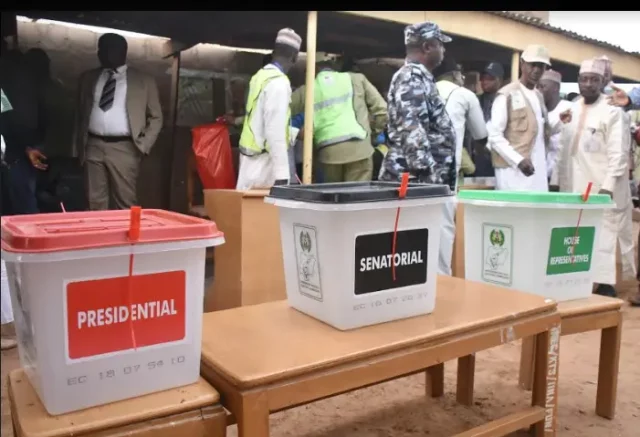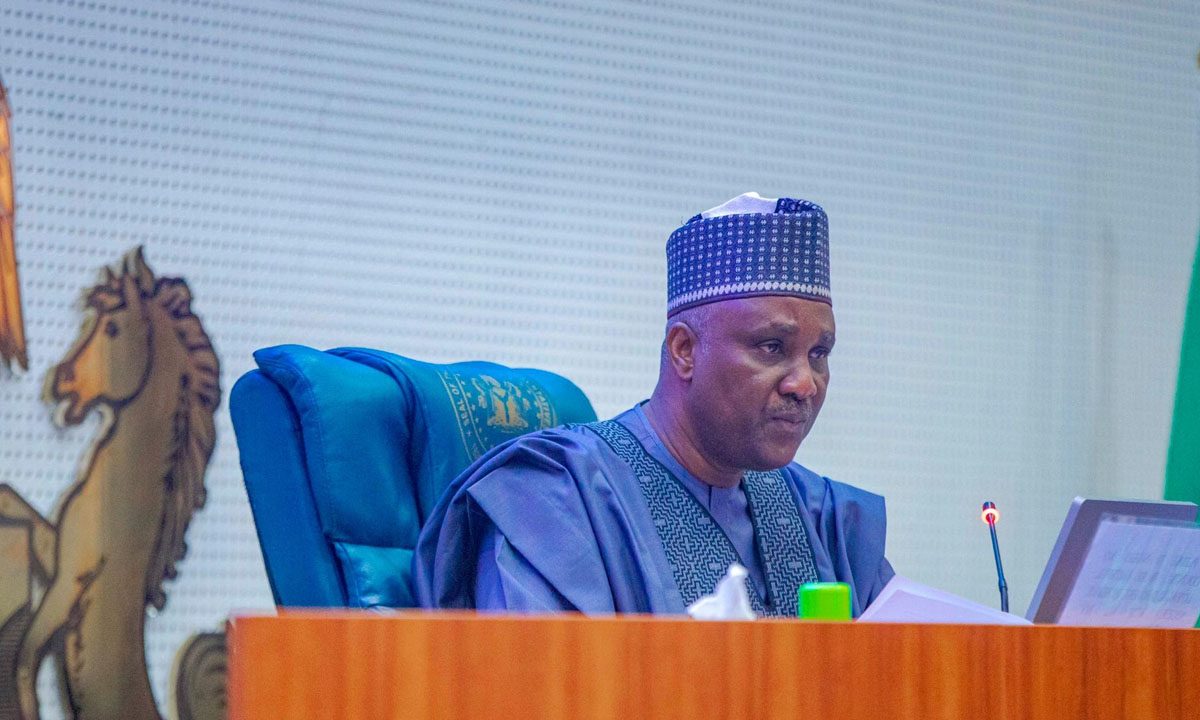Foremost Parliamentary Monitoring Organisation, OrderPaper releases final assessment of 2023 National Assembly Polls, confirms bandwagon effect on the legislative elections

Following the announcement of results by the Independent National Electoral Commission, OrderPaper Advocacy Initiative can confirm that a vast majority of citizens who voted at the National Assembly polls across the country did so on the basis of bandwagon effect more than any other consideration.
According to the civil society organisation, this key outcome means that most votes for candidates standing for Senate and House of Representatives seats were cast based on the political party platforms they ran on; as well as the choice of voters for the seat of President. It thus added that the appeal of individual legislative candidates played the least consideration for voters in making their choices.
This formed the highlight of a consolidated report released by OrderPaper on March 2, following the conclusion of its observation of the Presidential and National Assembly Elections held simultaneously on February 25, 2023. The organisation noted that an integral activity of its Elections Observation and Monitoring (EOM) for the 2023 polls was the use of an exit poll to ascertain the reasons citizens voted at the legislative elections.
READ ALSO: 2023: Seven of ten outgoing Governors lose 10th National Assembly bids
Explaining, Oke Epia, Executive Director of OrderPaper stated that randomly selected voters were interviewed for the exercise conducted by 415 citizen observers deployed to 326 polling units in the 360 federal constituencies across the 36 states of the country as well as the Federal Capital Territory (FCT), Abuja..
“The results of the exit poll, which was deployed immediately at the end of voting at the polling units, showed that only 32.71% of respondents who partook in the exercise made their voting choice on the appeal of the candidates. On the other hand, 61.35% of the respondents chose their candidates based on the two factors of party affiliation and choice of presidential candidates. The remaining 5.94% of respondents polled, based their ballot decisions on other random factors.
The exit poll also showed that there was improved participation in the National Assembly Elections as 94% of the respondents across the country voted in both the Senate and House of Representatives Elections and not just the Presidential Polls.” he noted.
READ ALSO: SHOCKER: Only 3 of 10 Principal Officers secured seats in 10th Senate
The assessment also revealed that of the randomly sampled respondents across the six geo-political zones who participated in its exit polls, the North East with 95.16% recorded the highest participation in the legislative elections, while the South East recorded 89.09% participation, the lowest based on the responses from those interviewed.
“These results clearly point to a bandwagon effect on the National Assembly elections,” Epia added, noting that the elections observatory has proved that citizens pay less importance to the legislative polls compared to the presidential and governorship. He noted that this was a key premise of the VOTER Project being implemented by OrderPaper with support from the United States Agency for International Development (USAID) and technical guidance by Palladium under the Strengthening Civic Advocacy and Local Engagement (SCALE) Project.
“While there was improved participation in the legislative elections, that appetite appeared not to have been appropriately directed to elect members of the National Assembly based on the conviction that those voted for possess the capacity, competence and track record to deliver services in office but rather on extraneous influences and considerations.
Änd for us at OrderPaper, this has always been the bane of the legislature, which continues to suffer deficiencies in being unable to hold the president, his appointees and bureaucrats to account in terms of vibrant oversight, providing the needed support to a competent executive arm of government in terms of lawmaking; and offering productive representation to constituents which are the core functions of the parliament and members of parliament.
It is our hope that this finding on the bandwagon effect will raise the much-needed awareness and sensitization among stakeholders in the democratic project and attract more attention to the legislature before, during and post-elections to facilitate improved service delivery by this most critical arm of government,” the report stated.
READ ALSO: 2023: “Why the quality of NASS Election campaigns worry us” – OrderPaper
According to him, OrderPaper deployed the 2023 elections observation as part of the implementation of the VOTER (Validating the Office of the Electorate on Representation) Project. Ahead of the deployment, the media-cum-legislative advocacy organization carefully recruited and onboarded hundreds of active citizens, christened Leg’ACEs (Active Citizens Engaging the Legislature), across the country and empowered them to participate in Election Observations and Monitoring (EOM) for the legislative elections on February 25, 2023.
“Following this, a Situation Room on the elections was opened on Friday, 24th February and remained active till Sunday, 26th February. The main objective of the exercise was to observe the effect of bandwagon trend in the National Assembly elections, as well as ascertain compliance of the election management body- the Independent National Electoral Commission (INEC) – and other stakeholders with the Electoral Act 2022 and INEC’s electoral guidelines.
An interim statement on the conduct of the elections was released on Saturday, February 25th, which focused on the pre-commencement of voting by INEC. That statement highlighted the findings from the field that voting started late in many parts of the country due to the late arrival of INEC officials.
While polls were expected to open at 8:30 am in the 176,846 Polling Units (PUs) across the federation, most of the polling units did not open on time, the statement revealed, among other salient findings from the field.” he explained.
READ ALSO: Aduda, Angulu absent as OrderPaper holds Townhall for FCT NASS candidates
“For a democratic exercise of this nature, the process is as important as the outcome, hence we carried out this civic responsibility to as well ascertain compliance of INEC as the election management body and other critical stakeholders with the Electoral Act 2022 and INEC’s electoral guidelines,” part of the statement read..
It however notes that it will publish and disseminate a comprehensive report on its observation of the 2023 general elections in the coming weeks.
OrderPaper is Nigeria’s premier and pre-eminent parliament-focused organization which deploys dedicated media reportage of the National Assembly, legislative advocacy as well exclusive legislative accountability measures towards promoting legislative strengthening and deepening of democracy in the country.



